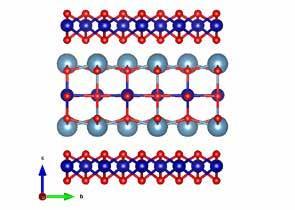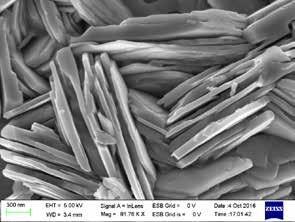

As we know, energy can’t be converted 100% into work. For instance, about more than a third of energy from fuel in internal combustion engine in a car goes into running the vehicle and majority of the fuel gets wasted as a heat. One can harness part of this waste heat (generated in vehicles, electronic circuits, factories as well as in natural heat sources) and turn it into useful energy, which can partly solve some of our energy problems. Thermoelectric materials converts part of the heat into useful electrical current. The less efficiencies of traditional thermoelectric materials demands further search in this area to find new kind of materials that can convert heat effectively into electricity.
The potential of thermoelectric material depends on its dimensionless thermoelectric figure of merit, zT=S 2 T/ρk tot , where S, ρ, k tot and T are respectively the Seebeck coefficient, electrical resistivity, total thermal conductivity and absolute temperature. To increase the zT of a material, a large thermopower (S) and high electrical conductivity as well as low thermal conductivity are needed. But these transport features are governed by interrelated material properties, thus number of factors are necessary to be optimised to increase zT. One way of increasing zT is by selectively reducing lattice thermal conductivity. Decoupling of these interdependent properties might be achieved by nanostructure. Theoretical predictions show that thermoelectric properties increases with decreasing dimensionality of a material.
Here at IIT Bombay, we are developing novel low-dimensional misfit heterostructures and studying their thermoelectric properties. Due to their unique misfit heterostructure, one can reduce the lattice thermal conductivity. At nanodimensions, these materials further enhance thermoelectric properties.
Prof. Leela S. Panchakarla
